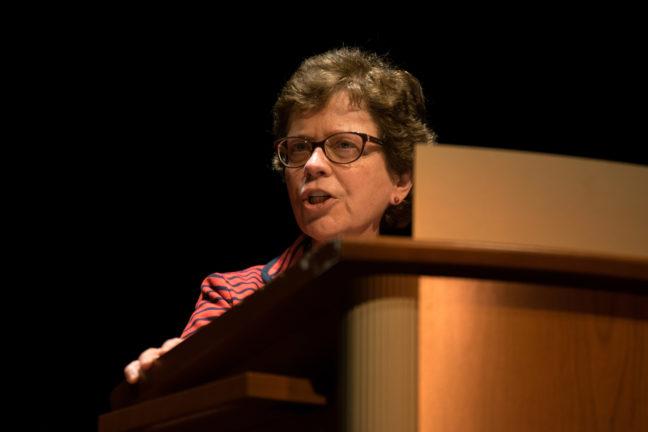The University of Wisconsin’s Division of Diversity states, “Diversity is a source of strength, creativity and innovation for UW-Madison.” Although the university currently provides a myriad of diversity initiatives and resources for minority students, change does not happen overnight.
The latest campus climate survey reported minority students, particularly students of color and LGBTQ+ students, feel less safe and less respected than majority students. Twenty-five percent of students felt expected to represent their identity in class. This experience was described as negative by LGBTQ+ students, students of color and students with disabilities.
First-hand experience is best for any learning environment. Why else would internships, job shadowing, research and study abroad be encouraged? However, it should not be a minority student’s job to offer a deeper perspective, represent their identity and educate their majority student peers. To address this truth, Chancellor Becky Blank established a faculty diversity initiative which allocates spending to the recruitment of diverse faculty. The Office of the Provost states, “UW-Madison is committed to hiring a diverse faculty and staff.” This is what has been needed for some time.
A non-diverse staff creates several negative effects. First, minority students do not feel at home on campus. Then, those who hold the majority on campus do not get to learn about diversity and what it brings to a classroom from someone who has lived it first hand. UW already has an ethnic studies requirement, but with most faculty being Caucasian, many students are taught about different minority groups by professors who have no first-hand experience of belonging to a minority culture. This limits the ability of students to directly come into contact with perspectives that are not similar to their own.
While no one chooses their race, gender identity or sexual orientation, members of the majority live with systemic advantages that shape their worldview. The experience and emotion many of these topics can evoke in minority students may become masked when a faculty member teaches an ethnic studies program while part of the majority population. This could be due to fear of being blamed for creating white guilt, having their emotions and life analyzed and critiqued by people who will never fully understand it or possibly fear of being held responsible to speak for an entire group of people.
Having a diverse faculty offers a safe environment for minority students to express their views and experience sensitive topics by providing an aura of likeness. Normalizing diversity on campus is critical to housing a productive and open learning environment.
Overall, a more diverse faculty will add an unprecedented richness to not only the ethnic studies requirement, but also a UW education as a whole. Through hiring faculty that belong to minority groups, students can reflect on a first-hand understanding of dealing with discrimination or race relations without sacrificing the comfort and education of minority students.
The Division of Diversity finishes its international statement on diversity as follows: “The University of Wisconsin-Madison fulfills its public mission by creating a welcoming and inclusive community for people from every background — people who as students, faculty, and staff serve Wisconsin and the world.” Even though no solution is as simple or timely as this concise promise is, Blank’s faculty diversification initiative shows UW is well on its way to achieving these goals.
Emiliana Almanza Lopez (almanzalopez@wisc.edu) is a junior majoring in sociology and environmental science.


